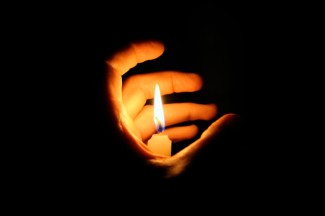Proposed new standards for gas fireplaces may make a cozy night in front of the fire a little cheaper. For decorative hearth products, the little blue flame that stands ready to light your gas fireplace at a moment’s notice can account for about 40% of the total annual energy consumed. Standing pilots lights are on 24/7, continuously burning small amounts of gas and sending dollars needlessly up your chimney. A proposed rule issued by the Department of Energy (DOE) yesterday would eliminate this waste with new energy-saving standards. But don’t fret—with the energy-saving technology, you’ll still be able start up your romantic, cozy, or mood-setting fireplace with the press of a button or turn of a knob.
DOE estimates that the proposed standards would net the average consumer $165 in savings over the life of the product. On a national level, hearth products meeting the new standards sold over 30 years would reduce natural gas consumption by about 7 billion therms, which is equivalent to the annual natural gas consumption of 10 million US households, and net consumers up to $3 billion in savings. Over the same period, the standards would reduce CO2 emissions by 37 million metric tons, an amount equal to the annual emissions of more than 3 million US homes
The proposed standards, the first for hearth products, apply to all vented or ventless hearth products including space heating hearth products, decorative products, gas logs, gas stoves, and outdoor hearth products. The standards would require manufacturers to eliminate the continuously burning pilot light. Many products already use electronic ignition—similar to what is used on gas ranges and ovens—eliminating the need for wasteful pilot lights.
A final rule is expected in December 2015 with an expected effective date five years later.



